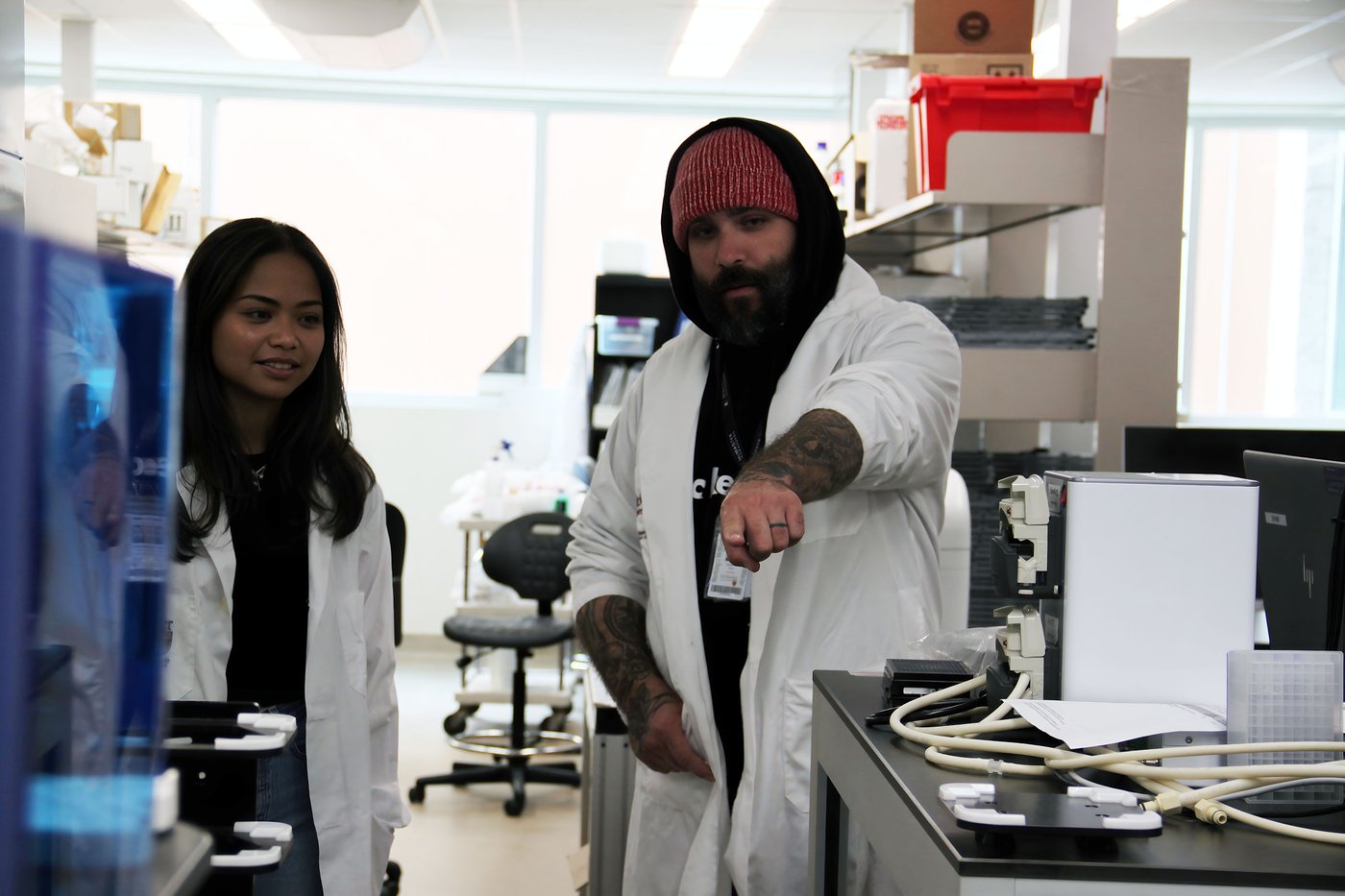Science
AI Enables Swift Discovery of Antibiotic for Bowel Disease

A researcher from McMaster University has made significant strides in developing a potential antibiotic treatment for Crohn’s and inflammatory bowel disease (IBD) using artificial intelligence (AI). Dr. Jon Stokes, leading a team at McMaster in Hamilton, Canada, collaborated with partners at the Massachusetts Institute of Technology (MIT) to isolate a new antibiotic treatment in a remarkably short period.
Traditionally, creating a new antibiotic is a lengthy and costly endeavor, often requiring several years and millions of dollars. However, through the innovative use of AI sequencing, Stokes and his team completed the initial phase of their research in approximately six months at a cost of around $60,000. This efficiency highlights the potential of AI to transform drug discovery processes.
AI’s Role in Antibiotic Discovery
The application of AI in this context has garnered positive feedback from experts in the field. Wyatt Tessari L’Allié, founder of AI Governance and Safety Canada, emphasized the importance of ensuring that AI-generated results are thoroughly verified by human researchers. He noted that while the use of AI for such applications is promising, it is essential to maintain rigorous oversight to validate findings.
Tessari L’Allié pointed out the current regulatory landscape, stating that Canada does not have comprehensive AI legislation covering healthcare. Instead, the use of AI in medical contexts is regulated on a case-by-case basis by Health Canada, which underscores the need for careful monitoring of AI applications in the health sector.
The Impact of Inflammatory Bowel Disease
Canada has one of the highest prevalence rates of inflammatory bowel disease globally, affecting thousands of individuals. Despite ongoing research, there is currently no cure for these conditions, making the discovery of new treatments crucial. The potential antibiotic developed by Stokes and his team may offer new hope for patients suffering from Crohn’s disease and IBD.
This breakthrough was first reported by The Canadian Press on October 5, 2025. As the research progresses, the implications of this work could extend beyond Canada, potentially influencing antibiotic development strategies worldwide. The integration of AI into such critical areas of healthcare highlights a transformative shift in how scientists and researchers can approach complex medical challenges.
-

 Lifestyle1 month ago
Lifestyle1 month agoWinnipeg Celebrates Culinary Creativity During Le Burger Week 2025
-

 Health2 months ago
Health2 months agoMontreal’s Groupe Marcelle Leads Canadian Cosmetic Industry Growth
-

 Science2 months ago
Science2 months agoMicrosoft Confirms U.S. Law Overrules Canadian Data Sovereignty
-

 Education2 months ago
Education2 months agoRed River College Launches New Programs to Address Industry Needs
-

 Technology2 months ago
Technology2 months agoDragon Ball: Sparking! Zero Launching on Switch and Switch 2 This November
-

 Science2 months ago
Science2 months agoTech Innovator Amandipp Singh Transforms Hiring for Disabled
-

 Technology2 months ago
Technology2 months agoGoogle Pixel 10 Pro Fold Specs Unveiled Ahead of Launch
-

 Science2 months ago
Science2 months agoChina’s Wukong Spacesuit Sets New Standard for AI in Space
-

 Technology2 months ago
Technology2 months agoWorld of Warcraft Players Buzz Over 19-Quest Bee Challenge
-

 Science2 months ago
Science2 months agoXi Labs Innovates with New AI Operating System Set for 2025 Launch
-

 Business2 months ago
Business2 months agoDawson City Residents Rally Around Buy Canadian Movement
-

 Business2 months ago
Business2 months agoNew Estimates Reveal ChatGPT-5 Energy Use Could Soar
-

 Technology2 months ago
Technology2 months agoFuture Entertainment Launches DDoD with Gameplay Trailer Showcase
-

 Technology2 months ago
Technology2 months agoInnovative 140W GaN Travel Adapter Combines Power and Convenience
-

 Technology2 months ago
Technology2 months agoGlobal Launch of Ragnarok M: Classic Set for September 3, 2025
-

 Education2 months ago
Education2 months agoAlberta Teachers’ Strike: Potential Impacts on Students and Families
-

 Technology2 months ago
Technology2 months agoNew IDR01 Smart Ring Offers Advanced Sports Tracking for $169
-

 Technology2 months ago
Technology2 months agoArsanesia Unveils Smith’s Chronicles with Steam Page and Trailer
-

 Technology2 months ago
Technology2 months agoHumanoid Robots Compete in Hilarious Debut Games in Beijing
-

 Science2 months ago
Science2 months agoNew Precision Approach to Treating Depression Tailors Care to Patients
-

 Health2 months ago
Health2 months agoGiant Boba and Unique Treats Take Center Stage at Ottawa’s Newest Bubble Tea Shop
-

 Technology2 months ago
Technology2 months agoQuoted Tech Launches Back-to-School Discounts on PCs
-

 Business2 months ago
Business2 months agoBNA Brewing to Open New Bowling Alley in Downtown Penticton
-

 Technology2 months ago
Technology2 months agoDiscover the Relaxing Charm of Tiny Bookshop: A Cozy Gaming Escape










